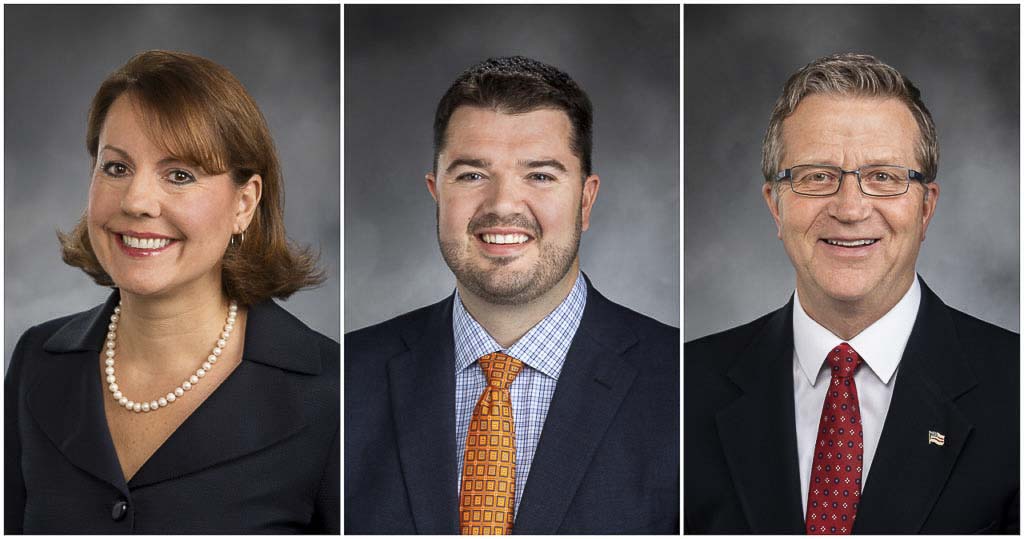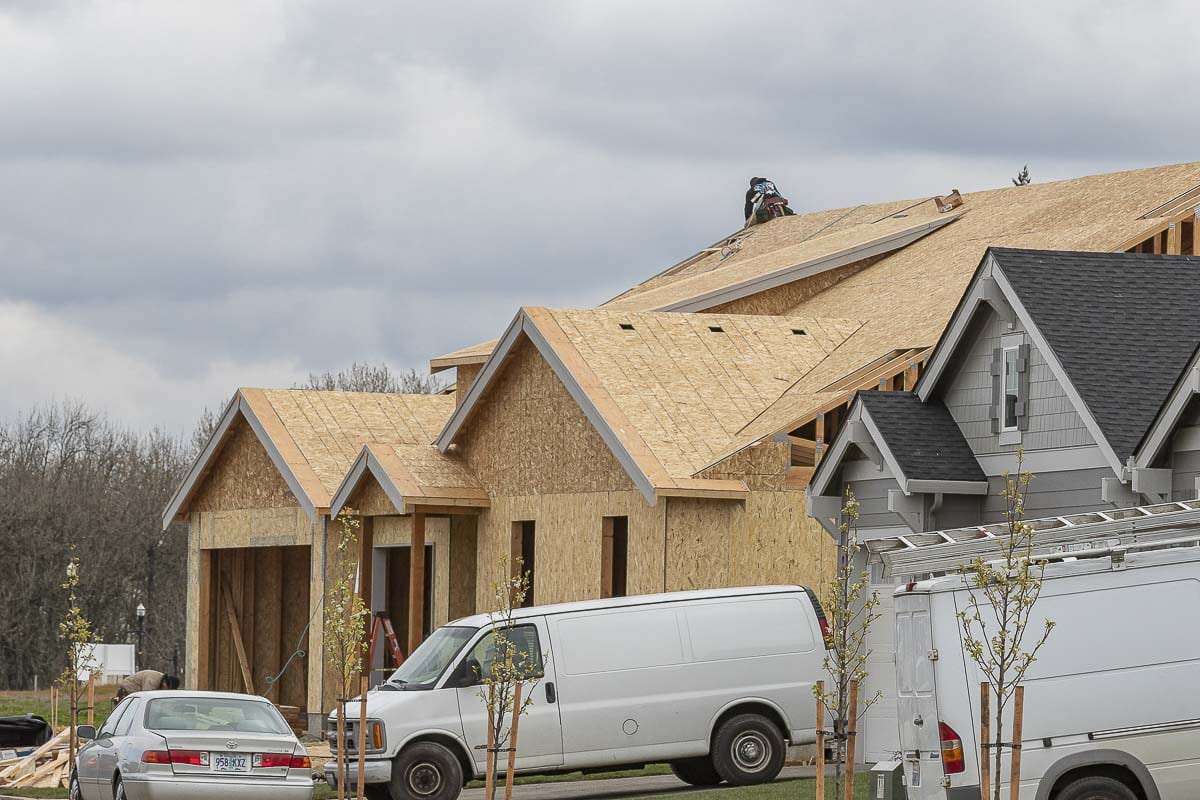The group said more than 230,000 small businesses across Washington were shut down March 25 by order of Gov. Jay Inslee
Editor’s note: This story was originally published by Lacamas Magazine. It is published here with permission from and full attribution to Lacamas Magazine (www.LacamasMagazine.com) and Editor Ernie Geigenmiller.

Washington’s Republican state lawmakers have released a plan designed to re-open businesses and society, in general. The group said more than 230,000 small businesses across Washington were shut down March 25 by order of Gov. Jay Inslee.
”To the people employed by small businesses I would contend that all business is essential,” said Sen. Ann Rivers. “Union workers get to work doing the same job that non-union workers aren’t able to do. If you’re in a union, the government says you can work in construction, if not you can’t work. This makes no sense. The most important reason why we’re doing this now is that we can’t wait until May 4 and expect to flip a switch and get businesses back up and running. I feel these businesses can keep people safe while operating. The Governor isn’t giving them the professional courtesy that businesses deserve.”
Rivers said Oregon and California’s COVID-19 rate of infection and death toll were lower, per capita, than Washington, and they’ve managed to keep construction running, golf courses open, car sales operating, as well as recreational fishing.
“Our $3 billion dollar rainy day fund will only cover a fraction to compensate for the loss of business revenue this quarantine has caused,” said Rivers. “Inslee isn’t moving at all on designating private construction as essential. Even the Democrats are getting frustrated that the Governor isn’t doing that. He’s not following the lead of Governors in Oregon and California. Our state economy can’t take this much longer, and we also need to keep protecting the elderly and physically vulnerable. We can re-open our economy and keep people safe. Let’s have faith in our citizens to be responsible.”

Republicans in both chambers worked together and are united in this plan.
”I think some movement is necessary,” said Rep. Larry Hoff. “We are looking at three big challenges. There’s the health challenge, the emotional challenge, and the economic challenge. The governor is overlooking two of those challenges, and he needs to start listening to the people. There’s no argument that he’s not listening. There is a business revitalization committee forming and there are Democrats on that group that state we need to get this state moving again. We can start again with these safeguards. Why can’t we build a house? Why can’t people go fishing? I’m shocked he’s not listening to us. He’s not injecting common sense to allow these decisions. It’s time we do something that is a positive for the state. Governor Inslee is too concentrated on eradicating this virus before we make economic gains.”
The plan states the following:
“While the executive branch does not classify these employers as essential, Republican legislators recognize the value of these businesses because of the families they support, communities they serve, and economic activity they generate. We recognize how these employers have already suffered from being forcibly closed and how offers of government assistance are no substitute for reopening.
“Early action by state government has protected public health in the face of this pandemic. We believe the executive branch and legislative branch also must take early action to minimize the economic damage associated with the COVID-19 emergency while the public-health effort to defeat the virus continues. Families and communities need our economy to recover as quickly as possible, as do the Washingtonians who benefit from public services and programs made possible by the private sector.
“The GOP proposes three sets of actions to enable the safe restart of Washington’s economy and promote its continued recovery over the long term. The earliest of these would focus on sectors that can return to safe operations with minimal risk to workers or customers, while giving hope to employers statewide that they will be able to follow suit.”
Republican legislators recommend these immediate actions:
- Convene a Restart Task Force comprising legislative leaders, relevant executive-branch directors and representatives of the business and organized-labor communities. This group will chart a course toward allowing all Washington businesses to reopen, on a phased or limited basis as necessary, with COVID-19 protections for workers and customers in place.
- Fully disclose the “metrics” that must be met before the business-closure order can be lifted or amended. Knowing the standards will allow the people of Washington to act accordingly.
- Deliver on the massive testing capabilities promised by state health officials ahead of the business-closure order. Direct the appropriate state agencies to acquire antibody tests and work with employers to screen workers. Workers found to have the antibodies resulting from the COVID-19 infection will be immediately eligible for employment.
- A moratorium on all state-agency rulemaking not related to the current crisis. Rules are important, but at a time when many businesses are simply trying to survive, the making of new rules seems less than essential. Relief from rulemaking goes hand-in-hand with relief from taxes.
- Interface with the governor’s Business Recovery Legislative Task Force and be prepared to support recommendations that are achievable, measurable and complementary.
- Exempt small businesses from paying sales and B&O taxes for one year.
- Offer state-government assistance to the many small businesses in Washington that do not qualify for federal emergency-assistance programs.
- Allow operations to resume in economic sectors that fit one or more of these criteria: low-risk, personal health, environmental protection, aid to elderly/physically challenged, alternate quarantine locations, assisting businesses with tax-related requirements, or property protection. Examples are auto dealers, solo landscape services, car washes, remodeling companies/contractors, residential construction, hairdressers/barbers, flower shops, RV parks, dentists, installers of home/commercial security systems, and accountants/tax preparers.
The GOP legislators recommend these actions be taken by the Legislature at its next opportunity:
- Forgive first-quarter small-business B&O taxes for 2020 and allow deferral of remaining quarterly taxes to the end of 2020. It makes more sense for state government to assist employers through this difficult time, so they can return to becoming regular taxpayers, then to see employers fail and drop off the tax rolls completely.
- Forgive payments related to unemployment insurance, workers’ compensation and paid family leave for April 2020 through the month that the business-closure order is lifted or amended, as appropriate.
They also recommend these actions be taken within 6-12 months of the lifting of the business-closure order:
- Increase the small-business tax credit to exempt businesses with annual gross receipts of an amount to be determined.
- Business-tax reporting and payment deferral for B&O, sales, and use tax.
- A year-long holiday from the state’s unemployment insurance social-cost tax, with the option for an additional one-year reduction in the social-cost tax. Timing would depend on the condition of the state UI trust account (which may shrink despite federal-funding backfill).
- Sales-tax holiday(s) to help jump-start business activity statewide: These would be aligned with known shopping promotions (e.g. back to school, Black Friday, Cyber Monday) and last for several days. Although state tax collections would be reduced, B&O collections would likely increase.
- Aid regarding workers’ compensation premiums: Extend L&I’s Employer Assistance Program for small businesses for all of 2020. Direct L&I to determine whether it has reserve funds to forgive some premium payments for small businesses with deferrals or payment plans per COVID-19.
- Waive state minimum-wage increase for 2021: With the minimum wage being tied to CPI and speculation that there may be a decrease in the CPI, hold any future inflationary adjustments to the state minimum wage until the index exceeds the January 2020 level.




